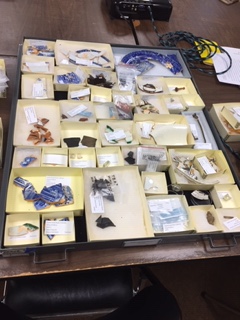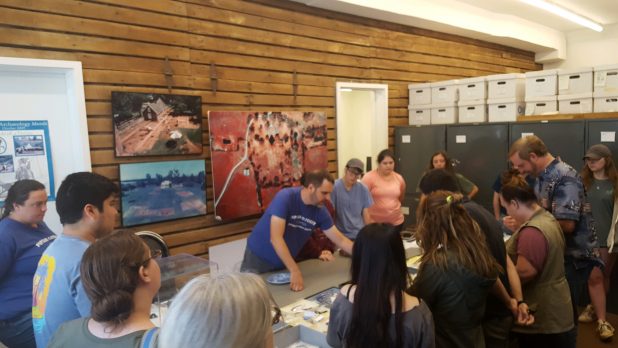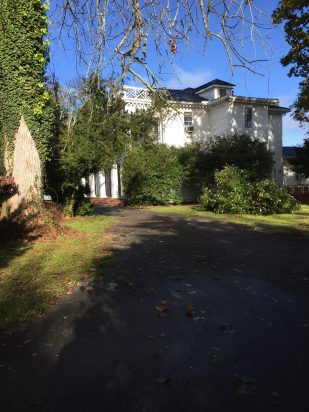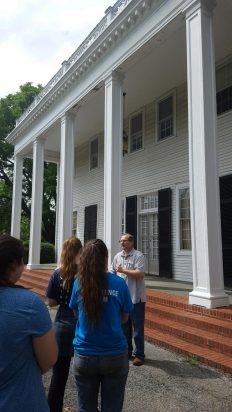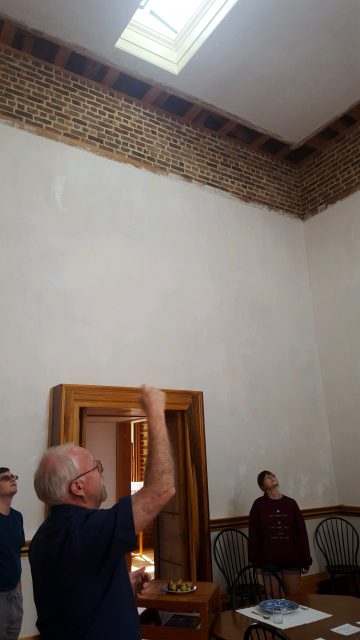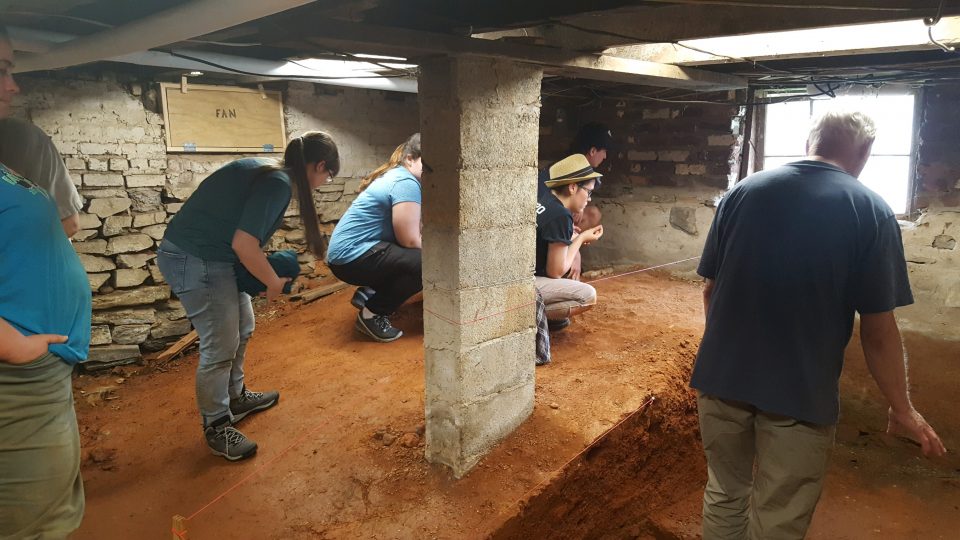Archaeology Blog
Field School Week 2
by Melissa Penner
The Archaeology Field School at Poplar Forest learned about the artifacts found during excavations in the past and applied these lessons to the theme of the week: material culture. Lectures taught by Dr. Jenn focused on the types of materials excavators have- and will- find in the Poplar Forest field grounds such as ceramics, glass, and iron (such as nails and other building materials.)
These materials were discussed in detail, as Dr. Jenn offered the historical background to each item regarding how archaeologists would date the artifacts. Ceramics changed overtime due to English and American potters who worked to perfect their craft hoping to create a mimic of Chinese porcelain, so lectures this week mentioned the ceramics whiteware, creamware, pearlware, stoneware, transfer prints, and many more. Glass bottles found on site would range in both shapes and colors depending on their uses and craftsman. Lectures discussed the history of glass manufacturing and the steps that might entail, and also the types of bottles an excavator might find, which could be categorized by use, such as: bottles for food, storage, chemical or pharmaceutical medicines, household bottles like inkwells or cosmetics, and of course liquor bottles.
Besides lectures, the students got to visit local historical sites to look into their individual histories concerning material culture. Besides touring Jefferson’s Poplar Forest house, Mead’s Tavern and the Bedford Alum Springs Hotel in New London and the historical Point of Honor house in downtown Lynchburg were two of the places students got to explore.
Almost conveniently, during the excavations this week students have found a number of glass shards, nails, pieces of ceramic, and a large amount of brick and mortar fragments. It was exciting to see connections between lectures and field work.
The week theme of material culture was a success, as students were able to learn about Poplar Forest’s history of material culture, see the material’s connection to an overall historical understanding of a group or area during the outings to New London and downtown Lynchburg, and experience discovering some material artifacts of there own in their field work. Energy is high and students are excited for what the future weeks in field school hold for them.
